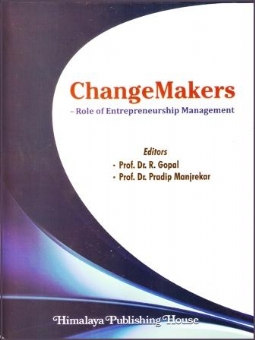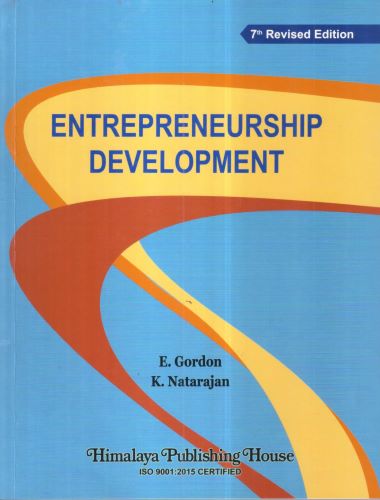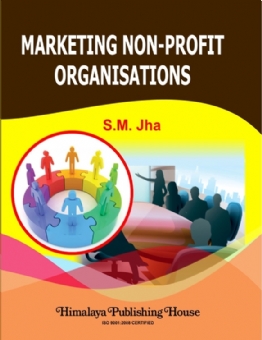Entrepreneurs: (i) create, (ii) innovate, (iii) employ, (iv) are vital to the success of every economy (v) facilitate change as facilitating change is at the core of entrepreneurial action. Entrepreneurship is one of the most meaningful movements of our time. While entrepreneurship’s importance to the business and economic landscape seems abundantly clear (i.e., responsibility for new products and services, job creation and economic vitality), it is often taken for granted. Indian economy faces many challenges in the years ahead in the context of globalisation, intense competition, rapid product obsolescence, technological development and increasing the pace of innovation. Since entrepreneurs have been critical to the commercialization of major innovations in the past it is only natural to ask: What can be done to maximize the chance that innovations of greater importance will be initiated in this century?
Entrepreneurs are the ones who make economic gains from innovative ideas and creative efforts. Rapid growth in entrepreneurship is seen because of the influx of small industries and the growth of technologies like Information Technology and Biotech and new enterprises like BPOs and KPOs, R&D Centers and Call Centers, etc. Entrepreneurship and Small Business Management is one of the popular programmers in business schools worldwide today. Many institutions world over now offer education and training programmers in the field of entrepreneurship.
Researchers have provided many answers to questions such as who is an entrepreneur with a variety of definitions used. Considerable exploratory studies are done on entrepreneurial motivations also. But. we have limited information about issues like nature of business, regional spread and the demographic compositions of existing entrepreneurs and networks of researchers, innovation incubators, venture capitalists and angel financiers, etc. In particular, we lack data on high impact/high growth entrepreneurs who are starting and growing firms that generates benefits to the economy and society beyond the monetary benefits given by the entrepreneurs. Further research is necessary to better understand the apparent link between new business formation and productivity growth.
Entrepreneurship is a central ingredient in economic growth. It serves as a vehicle for the commercial introduction of new goods and services as well as opening of new markets to innovations. Variation in entrepreneurial success across the world suggests that entrepreneurial environment including educational levels of local population, prior industry concentration and regional income growth may play a significant role in entrepreneurship development. Academic researchers are also working on the fundamental questions about exactly why the entrepreneurship process plays such a fundamental role in emerging economies and how policy and institutions can be designed to ensure long-term prosperity.
The contributions and shortcomings of past entrepreneurship research can be viewed within the context of six research design specifics: purpose, theoretical perspective, focus, level of analysis, time frame and methodology. The recent trend towards theory-driven research that is contextual and process-oriented is encouraging. But it is time for entrepreneurship researchers to pursue causality more aggressively. The last decade has seen a growing interest in entrepreneurship research. There have been an increasing number of practitioners, academic centers and journals in the areas of entrepreneurship and small business as well as a significant increase in the number of entrepreneurship centers.
Contents :
1. Socio-demographic Factors and its Impact on Entrepreneurial Success: A Study in Pune (Maharashtra) – Neil Parma, Prof. Dr. R. Gopal, Prof. Dr. Pradip Manjrekar
2. The Entrepreneurial Manager in Health Care Organizations – Jadish Khoyani, Prof. Dr. R. Gopal, Prof. Dr. Pradip Manjrekar
3. Motivational Aspects: A Study of Rune’s Entrepreneurs in the SME Sector – Rachna Mishra, Prof. Dr. R. Gopal, Prof. Dr. Pradip Manjrekar
4. Venture Capital Exit With Respect to Entrepreneurial Firms: A Optimal Strategy: A Conceptual Study – Bhupesh Singh, Prof. Dr. R. Gopal, Dr. Pradip Manjrekar
5. Entrepreneurial Ventures: An Impact Study with Respect to Gender Differences – Abhishek S. Deokule, Prof. Dr. R. Gopal, Prof. Dr. Pradip Manjrekar
6. Entrepreneurs as Transformational Leaders and Their Impact on Employees’ Commitment: A Secondary Study of Family Business Employees – Ms. Priyadarsini Khastagir Poddar, Prof. Dr. R. Gopal, Prof. Dr. Pradip Manjrekar
7. Psychological and Entrepreneurial Variables: Prospective Manager’s Attitude vis-a-vis Corporate Social Responsibility: A Study of Business Management Students in Muzzaffarpur (Bihar) – Mrityunjay Kumar, Prof. Dr. R. Gopal, Prof. Dr. Pradip Manjrekar
8. Influence of Entrepreneurial Personality on Employee Engagement Levels – Sujata Agarwal, Renuka M.
9. Indian Women Wine Consumers — Opportunity for Wine Retailing – Prof. Aditi Raut, Dr. Jayashree Bhakay
10. Analysis of Effectiveness of TQM on Organisational Performance: Special Reference to Small and Medium Scale Enterprises – Ashwini Kadam, Shalaka Bhosle, Jyoti Marathe
11. Entrepreneurs in the Information and Communication Technology Industry: Network Strategy and Access to Business Finance: A Study in Maharashtra Particularly, Mumbai and Pune – Amit Nair, Prof. Dr. R. Gopal, Prof., Dr. Pradip Manjrekar
12. Women Entrepreneurs in Small Businesses: Awareness of Supporting Agencies: A Study in IVJaharashtra – Anamika Mitra, Arti Yadav
13. Stress and Burn Out in Women Entrepreneurs – Dr. K.P. Sundari, Ms. Anusha Venugopal
14. Case Study on Oceana — The Sea Food Restaurant – Neetu Sharma, Shweta, Kumari Singh
15. Corporate Entrepreneurship and Factors Supporting It: A Study in Clinical Research Firms of Mumbai – Arohee Ketkar, Prof, Dr. R. Gopal, Prof. Dr. Pradip Manjrekar
16. Entrepreneurship as Career: Career Aspirations of Post Graduate Management Students: A Study in North East Mumbai – Dr. Sandesh Fernandes, Prof. Dr. Pradip Manjrekar
17. Mumbai’s Dabbawalas — An Entrepreneurial Success Story – Gagandeep K. Nagra, Prof. Dr. R. Gopal
18. Entrepreneurship and Branding: A Study on Consumer Perception of Brand Equity in Indian Organized Retail Sector – C.S.Dikshit, Shobhit Eusebius, Akanksha Yadav
19. Entrepreneurial Opportunities in Service Sector – Bharati Rajendra Dhanmeher, Prof. Dr. R. Gopal
20. Role and Challenges of Women Entrepreneur – Dr. Ruta Khaparde, Prof. Vijay Khaparde, Dr. Ravindra Deshmukh
21. Women Entrepreneurship Development : A Study and Role of NGOs in Mumbai and Pune – Kavita Kanabar, Paul K., Prof. Dr. Pradip Manjrekar
22. Aspirations and motives of Women Entrepreneurs: An Empirical Study of Wada Taluka (Thane District) – monali Patil, Aniket Kamble
23. Employee Engagement Levels: The Influence of Proactive Personality and Job Characteristics: A Study in ITes, Telecom and Retail Sector of Navi Mumbai – Niraj Baveja, Prof. Dr. R. Gopal
24. Entrepreneurship and Development: A Study of the Scheduled Castes in Goa – Parikshita V. Shetty, Kiran Shukla
25. Bank Finance to women Entrepreneurs: A Study in Selected Five Banks in Lucknow – Ramya Tiwari, Vishal Chavan
26. A Study on Social Profile, Business Aspects and economic Impact: with Respect to Rural Women Micro-entrepreneurs in SAphale Taluka, Palghar District Thane – Ranjana Patil, Prof. Dr. Pradip Manjrekar
27. Effect of locational and Clustering Advantage of SSI Units: A Study on Match Box and Cracker Units in Virudunagar District(Tamil Nadu) – R. Ravi, Dr. R. Gopal
28. Emergence of Entrepreneurs is by Their Communities in India -Youth’s Perspective – Sheetal Kejrwal
29. Risk Management Framework for Small Business Organizations – Dr. Srlniuas Gumparthi
30. The Attitude of Young Generation to Join Their Family Business – Ms. Sushma Nichani, Mrs. Alpha Bagul, Ms. Amina Momin
31. Education Matters? Study of Relationship between Education and Woman Entrepreneurship in Uihasnagar District Thane – Dr. Swati Sabale
32. Factors Leading to Successful Entrepreneurship: A Study of Small Scale Enterprises in Navi Mumbai – Shweta Vats, Prof. Dr. Pradip Manjrekar
33. Situational Factors in First-time and Habitual Entrepreneurship: A Study in Navi Mumbai – Shyanma Pushparajan, Prof. Dr. Pradip Manjrekar
34. Self-employed Artisan Entrepreneurs: An Empirical Study of Lock Manufacturing Units in Pune District, Maharashtra – Dr. Ghule T. P., Dr. SundariK. P., Vishal Chavan
35. Work-Family Conflict of Women Entrepreneurs in Chennai: Juggling Family and Business – Velnatraj, Prof. Dr. Pradip Manjrekar
36. The Impact of Microfinance in Improving the Economic Status of Women Entrepreneurs – Sweta Kumari
37. Ecopreneurs: Transformers of Economy through Sustainability – Dr. Sheenu Jain
38. Human Resource for Sustainable Organization (A Case Study on Role of HR in Women Entrepreneurs) – Ms. Neetu Sharma, Ms. Deepali Tendulkar
39. Women Entrepreneurs of Goa – Ms. Savia Mendes
40. The Innovation-Social Entrepreneurship Axis: A Study of Teachers as Educational-Social Entrepreneurs – Amol Shinde, Prof. Dr. Pradip Manjrekar
41. Impact of Culture on Entrepreneur Behaviors: Differences among Ethnic Groups in Singapore, A Multiracial Asian Country – Anurag Shriuastaua, Prof. Dr. Michael Frese, Prof. Dr. Pradip Manjrekar
42. Innovation, Value Creation and Industry Leadership: An Entrepre-neur Beneficial Impact Study – Rajesh Shirke, Prof. Dr. Pradip Manjrekar
Career Aspirations vis-a-vis Entrepreneurship as Career: A Study of Management Students (Bachelor of Management Studies) in Jaipur – Ravindra Purohit, Ahmed Skandari
44. Effectiveness of Promotion Campaign for Entrepreneurship Education – Jyoti Marathe
45. Attitude and Perception of Female Undergraduates towards Entrepreneurship – Kadamban Mhetre, Rashmi Gopinathan
46. Evaluating the Entrepreneurial Competencies: A Study of Local Train Women Entrepreneurs of Mumbai – Ms. Leena Nandanwar, Ms. Sapna Suri, Mrs. Alpha
47. Evaluating Informal Entrepreneurs and Their Motives: A Study of Street Vendors in Navi Mumbai – Manila Rupolia, Pooja More, Dr. Renu Verma
48. Rural Women SHGs in Goat Farming: Entrepreneurial Capacity Building: A Case Study in Akola. Maharashtra – Zoheb M. Shaikh, John Brazza
49. Business Problems of Small Scale Sector: Entrepreneurs’ Generation-Wise Analysis – T.V. Ramamurthy, Prof. Dr. Pradip Manjrekar
50. Women Entrepreneurs: Problems and Prospects: A Study in Thane (Maharashira) – Rita Sahu, Prof. Dr. Pradip Manjrekar
51. Responsible Entrepreneurship through Private Technical Education Institutions in India — With a Special Focus on Engineering Education in Haryana – Prof. Dr. Puja Walia Mann, Ms. Parul Gupta
52. Entrepreneurship in Logistics of Bulk Transportation in Maritime Industry – Dr. P. Mishra, Mariam Kazi
53. Performance of Microenterprises and Factors Influencing Them: A Study of Chattisgarh – Abhilasha Malviya, Prof. Dr. Pradip Manjrekar







